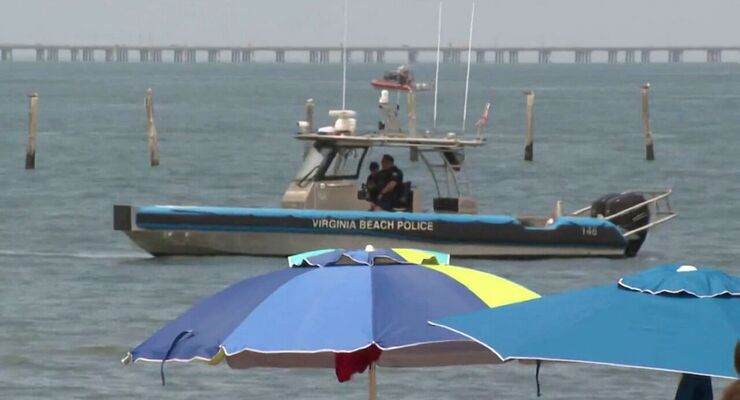
Vacations are meant to be a time of relaxation and adventure, but they can quickly turn into nightmares when accidents occur. Being away from home in unfamiliar surroundings often increases the risk of injury, especially when we let our guard down and embrace a carefree mindset.
Understanding the most common types of vacation accidents can help you stay vigilant and take necessary precautions. By recognizing potential hazards before they become problems, you can ensure your trip remains memorable for all the right reasons.
Drowning
Water-related activities are among the most popular vacation pastimes, but they also pose significant risks. Drowning remains one of the leading causes of accidental death during vacations, affecting both children and adults alike.
Many drowning incidents occur in hotel pools, beaches, and water parks where supervision may be inconsistent. Unfamiliar water conditions, strong currents, and overestimating swimming abilities all contribute to these tragic accidents. Even experienced swimmers can find themselves in dangerous situations when jet lag, alcohol consumption, or exhaustion impairs their judgment.
Children are particularly vulnerable and can drown in as little as two inches of water within minutes. Parents should never rely solely on lifeguards and must maintain constant supervision. Wearing properly fitted life jackets during water activities and avoiding swimming alone can dramatically reduce drowning risks.
Motorcycle Accidents
Renting motorcycles or scooters has become increasingly popular among tourists seeking adventure and freedom to explore. However, unfamiliarity with local traffic laws, road conditions, and the vehicle itself creates a dangerous combination that leads to numerous accidents annually” says Morris Injury Law, a Las Vegas motorcycle accident lawyer.
Many vacation destinations have different driving customs and infrastructure that can catch tourists off guard. Poorly maintained roads, unexpected obstacles, and aggressive local drivers add to the hazards. Additionally, travelers often skip proper safety gear like helmets and protective clothing to maintain comfort in warm climates.
The excitement of vacation can lead to risky behavior, including speeding and attempting maneuvers beyond one’s skill level. First-time riders are especially vulnerable, yet rental companies in some tourist areas have minimal requirements for renting powerful motorcycles. Taking time to familiarize yourself with the vehicle and always wearing appropriate safety equipment can prevent serious injuries.
Rental Car Accidents
Driving in an unfamiliar location presents numerous challenges that increase accident risk significantly. Rental car accidents are extremely common during vacations, often resulting from confusion about local traffic patterns, road signs, and driving customs.
Tourists frequently struggle with navigating while simultaneously trying to find attractions and accommodations. This divided attention leads to missed stops, wrong turns, and delayed reactions to traffic situations. Jet lag and fatigue further impair driving abilities, especially during the first few days of a trip.
Different countries have varying road rules, and even within the same country, driving conditions can differ dramatically from what you’re accustomed to. Unfamiliarity with the rental vehicle’s features and handling characteristics adds another layer of complexity. Always review your rental car’s insurance coverage, take time to understand local driving laws, and avoid driving when exhausted or distracted.
Slip and Fall Accidents
Slip and fall accidents are surprisingly common during vacations and can occur virtually anywhere, from hotel lobbies to restaurant patios. Wet surfaces around pools, freshly cleaned floors, uneven walkways, and poorly lit areas all contribute to these incidents.
Vacation accommodations may not maintain the same safety standards you’re accustomed to at home. Broken tiles, loose railings, and inadequate lighting often go unnoticed until an accident occurs. Beaches present their own hazards with hidden holes, sharp rocks, and slippery surfaces disguised by sand.
Wearing inappropriate footwear like flip-flops in unsuitable locations increases fall risk substantially. Alcohol consumption, which tends to increase during vacations, impairs balance and judgment, making falls more likely. Being mindful of your surroundings and reporting hazardous conditions to property management can help prevent injuries to yourself and others.
Amusement Park Accidents
Theme parks and amusement parks attract millions of visitors annually, but these entertainment venues carry inherent risks. While serious accidents are relatively rare, they can result in catastrophic injuries when safety protocols fail or visitors don’t follow rules.
Mechanical failures, operator errors, and inadequate maintenance can cause ride malfunctions that endanger passengers. However, many accidents result from riders ignoring height restrictions, health warnings, or safety instructions. Pre-existing medical conditions like heart problems or pregnancy can be aggravated by intense rides, leading to serious complications.
Children are particularly at risk when they meet minimum height requirements but lack the physical strength or understanding to remain safely secured. Loose articles, improper restraints, and horseplay on rides also contribute to injuries. Always follow posted warnings, secure loose items, and report any safety concerns to park personnel immediately.
Food Poisoning
While not always considered a traditional “accident,” food poisoning is an extremely common vacation mishap that can completely derail your trip. Consuming contaminated food or water in unfamiliar locations exposes travelers to bacteria and parasites their bodies aren’t accustomed to fighting.
Street food, buffets, and restaurants with questionable hygiene practices pose the greatest risks, particularly in developing countries. Ice cubes made from tap water, unwashed fruits and vegetables, and undercooked meats are frequent culprits. The excitement of trying new cuisines often leads travelers to overlook warning signs.
Food poisoning symptoms range from mild discomfort to severe dehydration requiring hospitalization, potentially ruining several days of your vacation. Being selective about where you eat, avoiding raw or undercooked foods, and staying hydrated can minimize this risk significantly.
Staying Safe on Vacation
Prevention is always better than dealing with the aftermath of an accident during your vacation. Taking simple precautions and remaining aware of your surroundings can help you avoid most common vacation accidents.
Research your destination beforehand to understand potential hazards and local customs that affect safety. Purchase comprehensive travel insurance that covers medical emergencies and accidents. Keep emergency contact information readily available and know how to access local emergency services.
Most importantly, don’t let vacation excitement override common sense and caution. The memories you create should be happy ones, not cautionary tales about what went wrong during your trip.
















